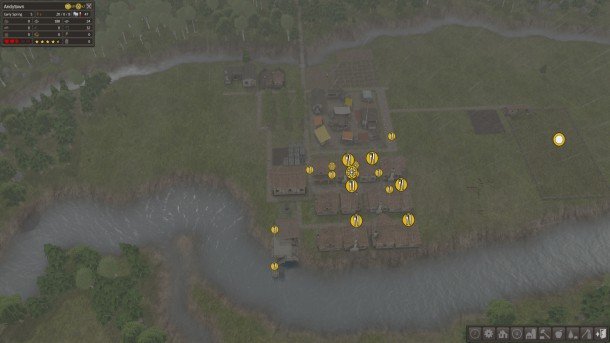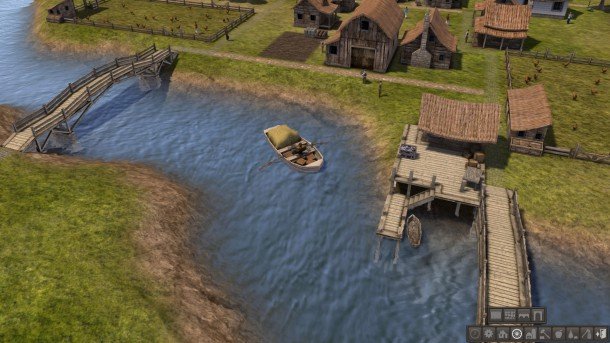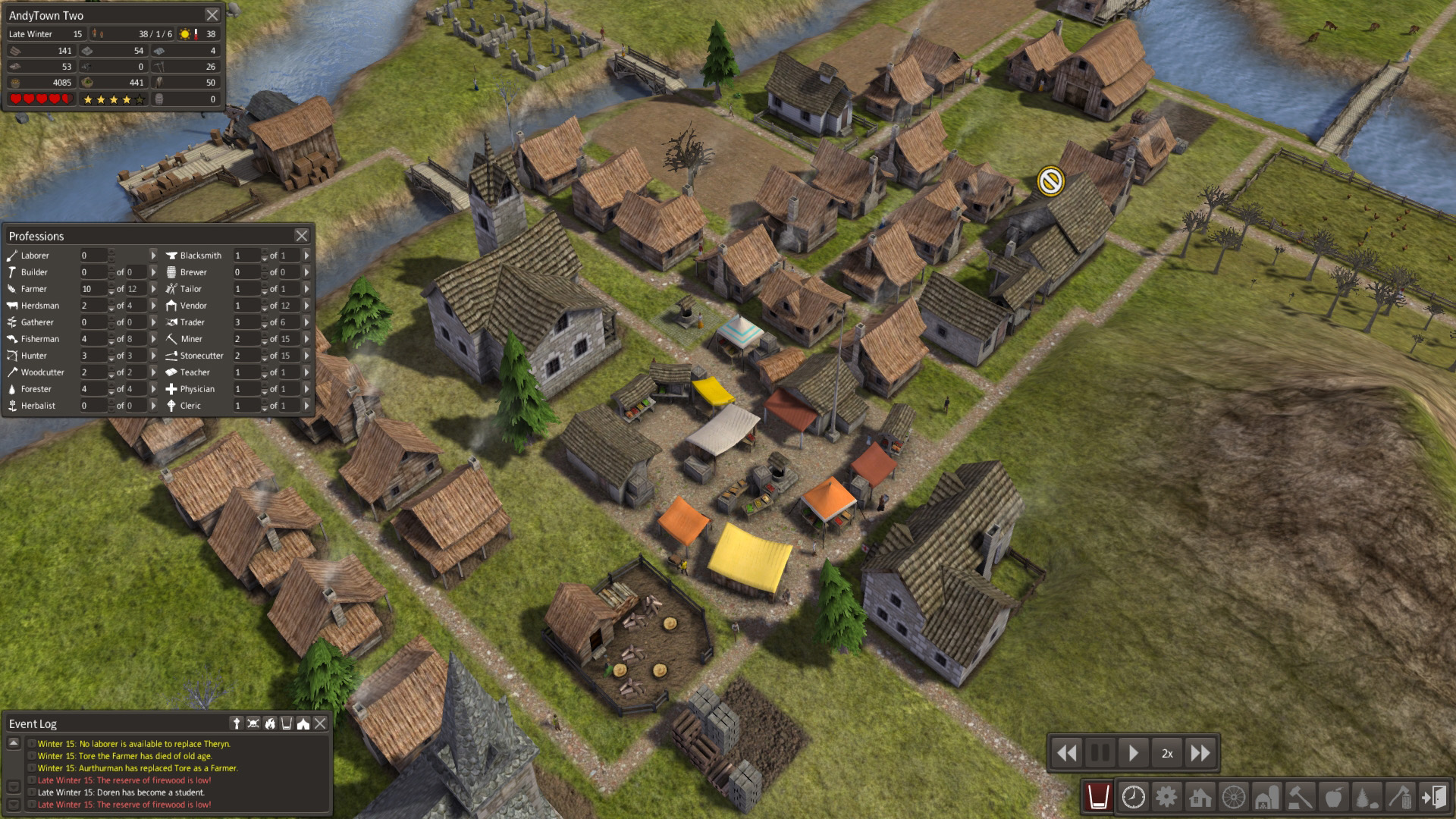Our Verdict
A nice change of pace for city-builders, but it loses momentum once the immediate urgency of survival goes away.
PC Gamer's got your back
Written by Andy Chalk
I killed a lot of people in Banished. I saw them born and I watched my decisions kill them. Stripping the land, building homes, and planting vast swaths of crops seemed like a good idea, but things got ugly when a hard winter set in. Firewood stockpiles were meager and the distance to new trees was too great to keep up with demand. Then tools started to break, and I don't know what happened to all the iron but there wasn't any for the blacksmith, so folks just did the best they could, which wasn't very good at all. From there, the colony didn't take long to spiral down into my own private Roanoke.
Things went better for the citizens of Andytown Two, who didn't live in luxury but at least managed to live, but with stability came routine, and with routine, a loss of urgency. The struggle against nature is Banished's best struggle.
Balance in all things
Banished is a city management simulator with a survival focus. It begins with a selectable world state and starting conditions that include terrain and climate types, how many families will settle the colony, and what they'll bring from their former home. First, though, you'd be well advised to view the tutorials, because things may not work quite as you'd expect. To build a home, for instance, you must first create a stockpile of trees and rocks, from which the builders will take the materials they need. But those stockpiles must also supply the woodcutter, who will use logs to provide fuel for the winter; the blacksmith will do the same with iron to make tools.

You can build anything at any time as long as you have the resources, but those resources must be managed carefully. Trees grow back painfully slowly, rocks and iron that are taken from the surface are gone forever, and even when forestry management, quarries, and mines are in place it takes years of game time before they're operating at capacity. Moving too fast will exhaust the land, but excess caution can leave the birth rate unable to keep up with old age and accidents, which will inevitably take a toll on your numbers. After your colony is well-established, decisions will still have to be made to keep growth in harmony with available resources: When to expand into an old hunting ground, where to inflict the blight of an open-pit quarry, and whether to start educating the children or simply set them straight to work.
Banished concentrates on the immediate survival needs of the individual, and actually operates at an individual level: Each newborn child has a name, grows up to adulthood, takes up with another settler, and (hopefully) has a child or two of her own, then grows old and dies. Lives aren't rendered in detail and it becomes impossible to keep up as the population grows, but I did feel a kind of poignancy seeing someone who's birth I "witnessed" just a couple of hours ago die of old age.
Making friends and influencing people
You don't control your citizens, but your people do have "lives" of their own, which can sometimes throw a wrench into your plans. They get cold, hungry, and tired. While you're yelling at them to just frickin' move that rock, they go for lunch. It's not that they're endemically lazy; it's more like they're unionized, and by gosh, it's break time. But that's also a big part of the appeal: You're not building this town. They are, and that can lead to an odd sort of personal connection with "characters" who don't actually exist, like the crazy herb lady all alone out in the forest or those jerk builders who insist on regular meal breaks. Breaking that wall of digital anonymity leads to a deeper desire to see them succeed.

Yet that connection fades as the population grows and life becomes more stable, and Banished settles in as a more conventional city management simulator. My interest faded when I no longer recognized the names of my followers—I still had to put in effort to keep my people happy, but "my people" don't feel nearly as important as Adon, who was born in late winter of the sixth year. Larger settlements have to be maintained—things will slowly fall apart if you let them and disasters can make your life difficult—but it's maintenance without the same life-or-death motivation. When that initial survival drama passes and Banished slips into a routine of keeping people happy instead of keeping them alive, it goes from compelling to competent, its sense of purpose lost in the facelessness of a burgeoning population.
Banished hits the sweet spot between complexity and accessibility that makes a relative strategy game amateur feel competent. But my real sense of satisfaction came not from being a builder of cities, but as a leader of people—a game that played out as much in my head as on the screen. It kept me playing for hours, fretting over the fates of Silvestevan, Adon, and the rest of the Andytownies, but having exhausted myself on that binge and satisfied the urge to see my people prosper, I didn't feel any urge to do it again.
A nice change of pace for city-builders, but it loses momentum once the immediate urgency of survival goes away.
PC Gamer is the global authority on PC games—starting in 1993 with the magazine, and then in 2010 with this website you're currently reading. We have writers across the US, Canada, UK and Australia, who you can read about here.



